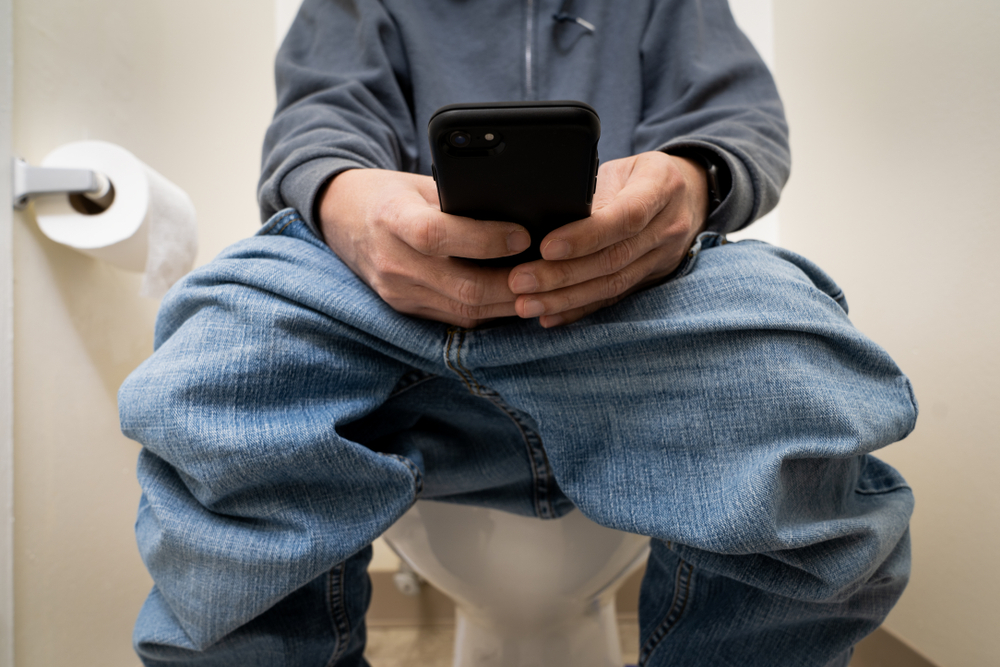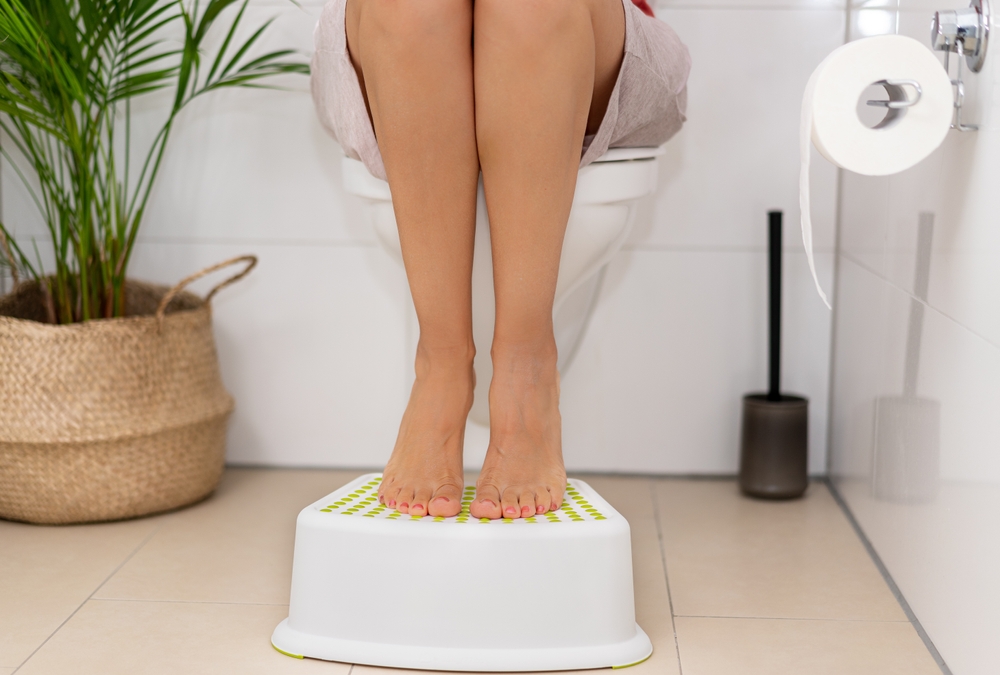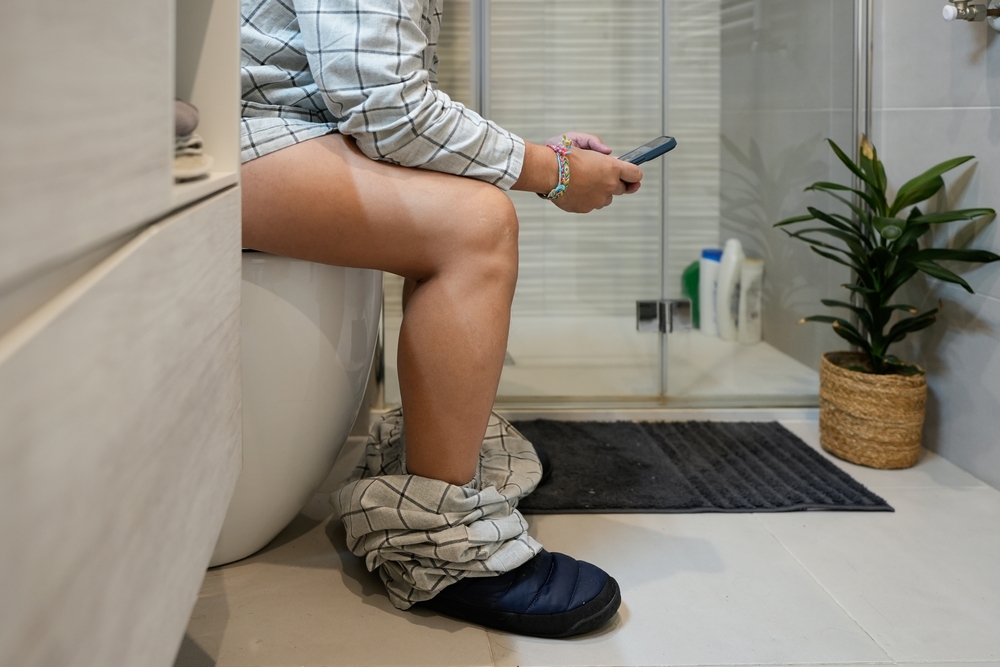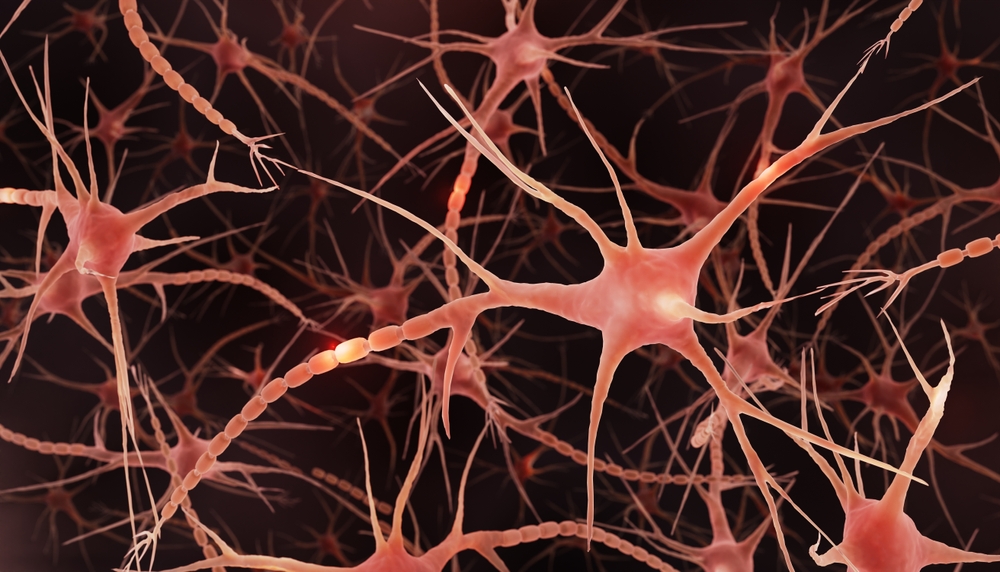Using Your Phone on the Toilet Could Seriously Raise Your Risk of Hemorrhoids

We live in an era where every idle moment feels like a void demanding to be filled. Silence has become uncomfortable, and stillness feels like surrender. So, we reach for the glowing rectangle in our hands—the one object that promises connection, distraction, and stimulation all at once. It’s become our universal comfort tool, our escape hatch from boredom. Whether it’s answering emails, reading comments, or aimlessly scrolling through social media, we bring this device everywhere, even into the most private spaces. The bathroom, once a place of short solitude, has turned into an extension of our digital world. That innocent scroll on the toilet might seem like no big deal—a harmless moment of multitasking—but according to recent studies, it carries more weight than we realize.
The bathroom has always been a symbol of privacy, a small moment of escape from the noise of the world. But now, even that sanctuary has been invaded by the endless scroll. We no longer sit in peace; we carry the chaos with us. That’s the irony of the modern age: we’re always connected, but rarely present. The next time you find yourself sitting there, screen in hand, remember that sometimes, doing less is the most powerful act of self-care.

The Science Behind the Screen: Why Sitting Too Long Matters
Hemorrhoids—those swollen, irritated veins in the rectum or anus—are more common than most people care to admit. But what’s often overlooked is how lifestyle habits contribute to their development. According to Dr. Bradley Rieders, a gastroenterologist interviewed by CNN Health, the problem isn’t the phone itself—it’s the time we spend sitting, and how we sit while using it. Sitting on a toilet for too long increases pressure in the lower rectum, where blood pools due to gravity. Over time, this added pressure can lead to swelling and inflammation, resulting in hemorrhoids. The longer the session, the greater the strain.
It’s not just about time—it’s also about posture. The typical modern toilet wasn’t designed for natural alignment. In many traditional cultures, squatting remains the norm, aligning the body in a way that reduces strain. But when we sit, especially while distracted by a screen, our attention drifts and we unconsciously push harder or sit longer than necessary. “People used to read magazines or newspapers,” Dr. Rieders notes. “Now, the endless scroll keeps them seated far longer.” Add in the physical stillness of phone use—the way your muscles lock, your posture stiffens, your breathing slows—and the combination becomes a perfect storm for discomfort. The irony is that the very act of seeking relaxation through our screens ends up putting our bodies under stress.
Beyond hemorrhoids, prolonged toilet sitting can also contribute to other health issues such as pelvic floor dysfunction and poor circulation in the lower body. When you sit immobile for long periods, blood flow decreases, and muscles that support your core and pelvic area can weaken over time. This subtle, slow harm is easy to overlook because the effects don’t appear immediately. The habit creeps up, and before we notice, we’ve normalized something that gradually undermines our physical well-being.

A Reflection on Modern Habits: The Price of Constant Stimulation
This isn’t merely about hemorrhoids—it’s about how modern life has rewired our brains. We’ve trained ourselves to fear stillness. The bathroom, once a brief escape from the world’s noise, has become just another scroll zone. We no longer sit quietly, we scroll endlessly. Every free moment—those tiny pockets of solitude that used to belong to our thoughts—now belongs to our feeds.
Psychologists call this the dopamine feedback loop. Each new notification, each scroll, releases a small hit of dopamine, a chemical reward that keeps us coming back. It’s the same mechanism that drives gambling addiction, except our casino fits in our pocket. When we reach for our phone on the toilet, it’s not just habit—it’s biology. We crave that next flicker of novelty, that next distraction, and the cost is our ability to simply be. Over time, our attention becomes fragmented. We lose the ability to focus deeply or rest fully, even in moments meant for pause. The problem isn’t technology itself—it’s our inability to separate from it long enough to breathe. In a world that glorifies constant engagement, stillness has become the ultimate rebellion.
We often confuse motion with progress, but they aren’t the same. The human mind needs stillness to process, to recharge, to create. Without it, we live in a state of constant cognitive noise, reacting instead of reflecting. The bathroom example may sound trivial, but it symbolizes something much larger—the erosion of our ability to be present in even the simplest moments. If we can’t sit quietly for five minutes without our phones, how can we hope to sit with our thoughts, our emotions, or the people we care about? The world is losing its pauses, and with them, its clarity.

Expert Insights: The Health Beyond the Humor
The experts featured in Healthline and CNN agree that while hemorrhoids are incredibly common, they are far from inevitable. Dr. Snehal Patel, a colorectal surgeon cited by Healthline, explains that roughly half of adults over 50 experience hemorrhoids at some point, but that doesn’t mean it’s something we should accept as normal. He emphasizes prevention through mindfulness, nutrition, and better daily habits. The bathroom, Patel reminds us, should be a place for bodily function—not relaxation or entertainment.
1. Limit toilet time to under 10 minutes. The longer you sit, the greater the gravitational pressure on your rectal veins. It’s easy to lose track of time while scrolling, so setting a mental or even physical timer can make a difference. This isn’t about discipline for discipline’s sake—it’s about respecting the natural rhythm of your body.
2. Stay hydrated. Water plays a crucial role in digestion. Dehydration hardens stool, making bowel movements more difficult and increasing the risk of strain. Imagine your digestive system as a flowing river—without enough water, the current slows and pressure builds. Consistent hydration keeps things moving smoothly, protecting your body from unnecessary stress.
3. Eat fiber-rich foods. Dietary fiber acts as your digestive system’s internal broom, sweeping waste efficiently through your intestines. Foods like whole grains, beans, fruits, and vegetables are your best allies in keeping things soft and easy. The modern diet, heavy in processed foods and low in natural fiber, only compounds the problem. A simple shift in eating habits can spare you a world of discomfort.
4. Don’t ignore nature’s call. Holding it in is more damaging than most people realize. The longer you delay, the harder your stool becomes, and the more force you’ll need later. It’s a vicious cycle that can lead to chronic strain. Listening to your body’s cues is a basic act of self-respect—one we too often dismiss in our rush to keep moving.
Beyond these physical recommendations, Patel and Rieders both point out that awareness itself is a form of prevention. When you begin to notice your habits—how long you sit, how often you reach for your phone, how you breathe—you naturally start to make healthier choices. Awareness transforms behavior, and in turn, health follows. It’s the same principle that governs all forms of wellness: what you notice, you can change.

From the Toilet to the Timeline: What This Says About Us
There’s something both absurd and profound about scrolling through inspirational quotes while physically harming yourself in the process. It’s a perfect metaphor for modern life—seeking improvement while ignoring presence. We fill our feeds with advice about mindfulness, mental health, and balance, yet we rarely stop to practice any of it. Scrolling on the toilet becomes symbolic of a larger disconnection: a generation always plugged in, yet seldom grounded. It shows how deeply the need for stimulation has replaced the instinct for rest.
The act itself may seem trivial, but it reflects a global mindset. We’ve replaced contemplation with consumption. Our days blur into an endless feed of digital noise, and our bodies are starting to rebel. Every ache, every bout of fatigue, every health warning like this one is the body’s way of asking for attention. The irony is sharp—we ignore our bodies while seeking digital connection, yet our physical health is the foundation for every other part of our lives. It’s time we stop outsourcing our awareness to screens and begin reclaiming it moment by moment.
On a deeper level, this conversation is not just about our health but our humanity. We’re forgetting what it means to experience moments unfiltered. The quiet of the bathroom is one of the few spaces where the world doesn’t demand anything of us—no deadlines, no pings, no feeds. Yet we fill it anyway. When we fill every silence, we silence our inner voice. The more we scroll, the less we listen. The world doesn’t need us to be constantly connected—it needs us to be conscious.
Reclaiming Stillness: A Small Act of Awareness
The next time you feel the reflex to reach for your phone in the bathroom, pause. Feel the instinct, but don’t follow it. What happens when you just sit, when you breathe and let your thoughts wander freely? You might notice things you’ve been avoiding—the pace of your breath, the tension in your shoulders, the noise in your mind. These are not inconveniences; they’re invitations to presence.
Leaving your phone behind, even for a few minutes, can feel strangely liberating. It’s a reminder that not every moment needs to be filled with something. Doing nothing is not laziness—it’s clarity. In a culture addicted to productivity and perpetual motion, a few minutes of true stillness can restore more energy than hours of scrolling ever could. Awareness is built in small acts—one of them might just start on a bathroom break.
If you can begin to reclaim these moments of quiet, you might find that your relationship with technology starts to shift. You begin to use it consciously, rather than compulsively. You start noticing when you’re present and when you’re distracted. The smallest awareness can ripple into your entire day. You might even discover that the most meaningful moments happen not in the scroll, but in the stillness between them.
Finding Presence in a Distracted World
This story about hemorrhoids may seem like a small footnote in modern life, but it’s really about something much larger—the state of our attention, our health, and our humanity. Every habit, no matter how small, tells a story about what we value. When we fill every gap of silence with noise, we lose the spaces where reflection grows. The bathroom, that last frontier of solitude, reminds us that our well-being depends not just on what we do, but on what we allow ourselves to stop doing.
So the next time you sit down, leave the phone outside. Let your body and your mind share a moment of peace. In a world where everything demands your attention, the choice to be still becomes revolutionary. Stillness is not the absence of progress—it’s the beginning of it.
And perhaps, in learning to put the phone down, we rediscover something we’ve lost—the quiet courage to simply be with ourselves, even for a moment.
Loading...

